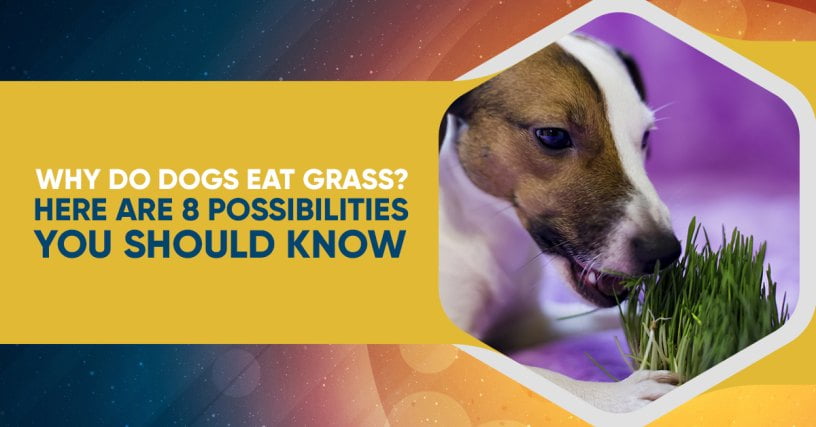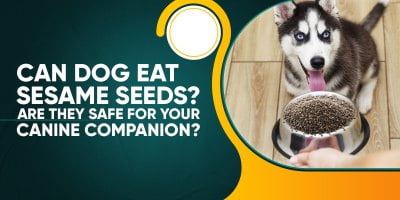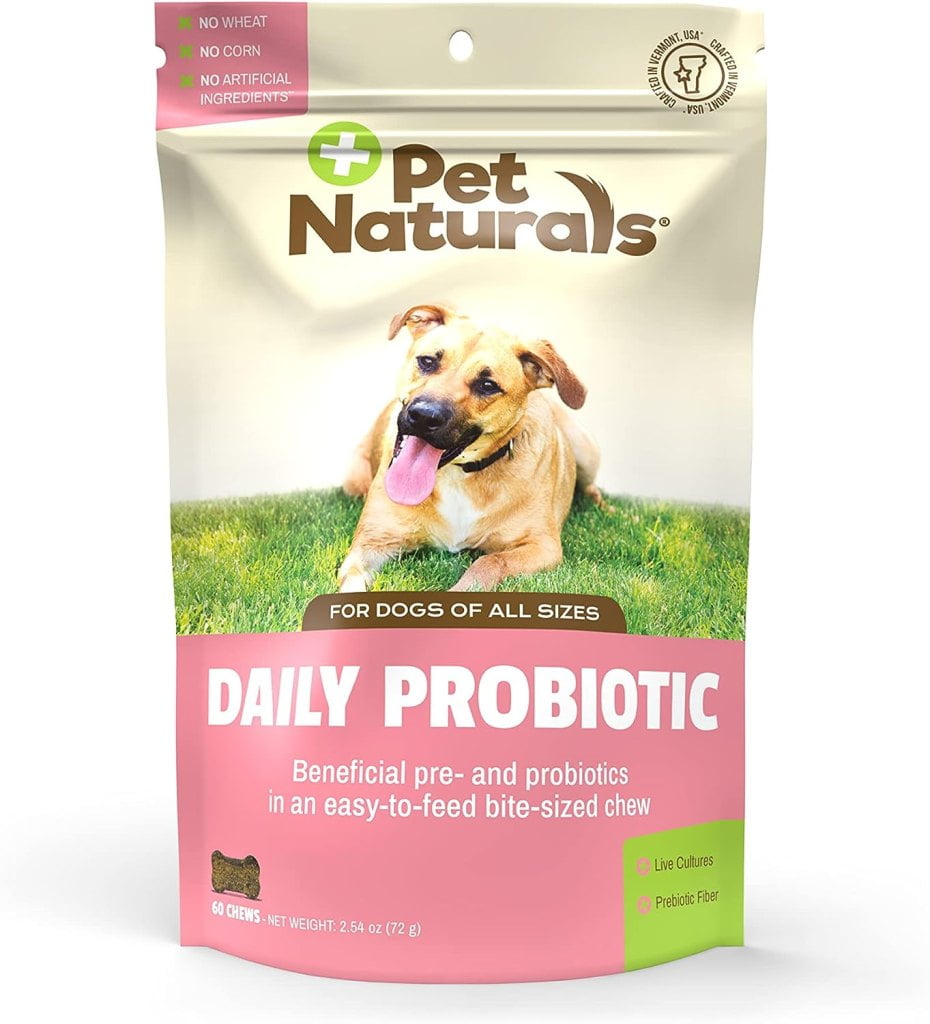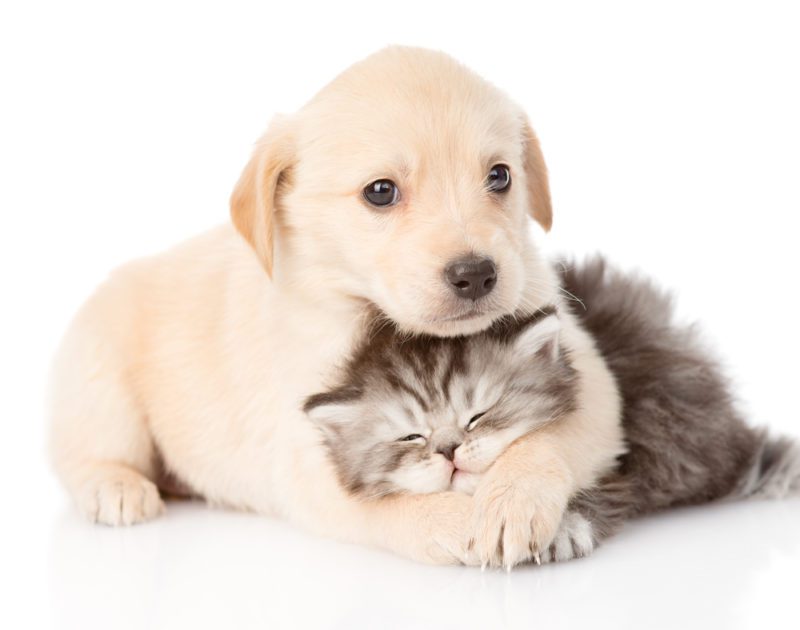When it comes to the topic of whether dogs eat grass there are a lot of assumptions and myths. It’s time to uncover the truth. According to The American Society for the Prevention of Cruelty to Animals, they can do it because they are bored. They are trying to be healthier because they are craving calcium or they are trying to make themselves throw up. There are other reasons why dogs eat grass and this blog will look at the reasons why this is happening.
Table of contents
Estimated reading time: 7 minutes
Common Reasons Why Dogs Eat Grass
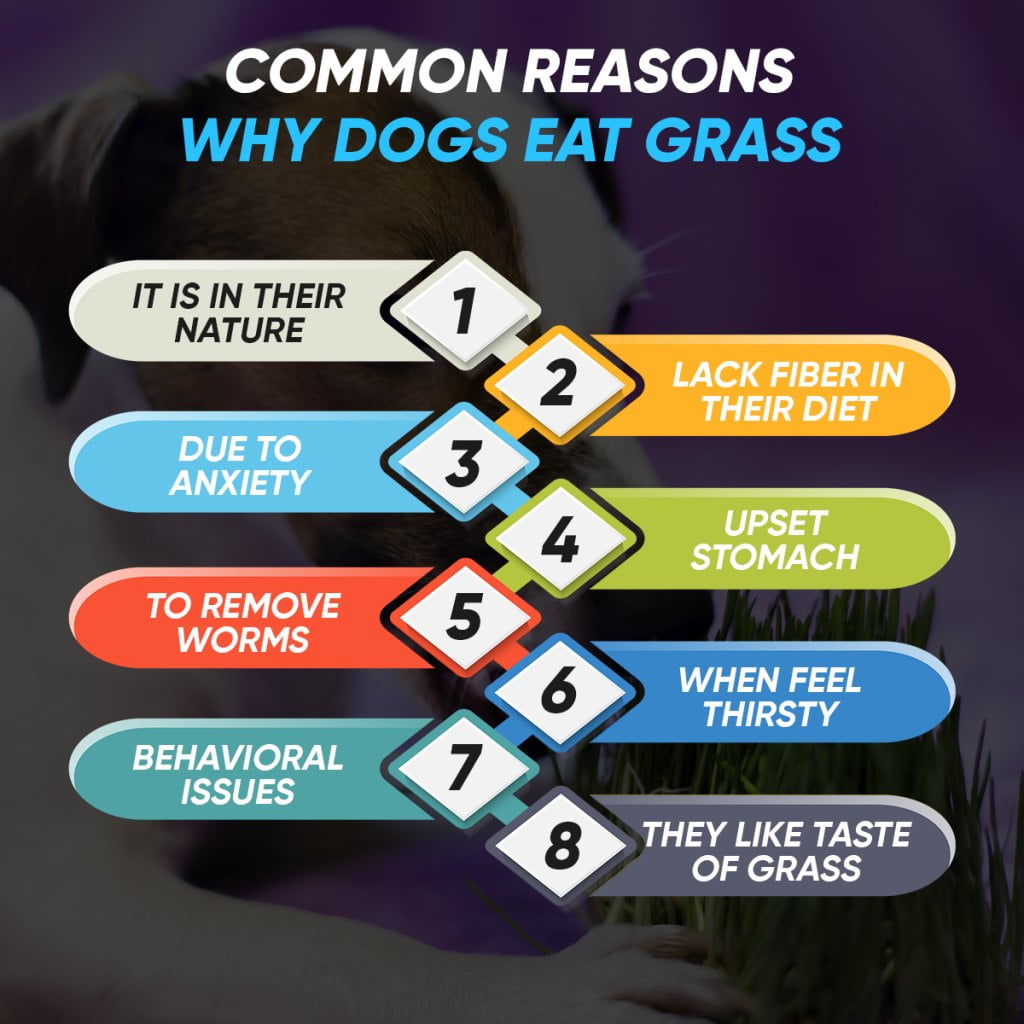
1. It is in Their Nature
Dogs in their natural ecosystem undoubtedly seek out and devour rabbits, goats, and other creatures that are grazing on grass. In the wild, dogs would be getting crucial nutrients from consuming animal stomachs that are filled with tufts of grass.
Since dogs aren’t likely to come into contact with rabbits or goats any longer daily. So they may see a need to get these nutrients elsewhere through copious amounts of munching on fresh sod.
This is one possible example of dog instincts at work which could explain why many urban canines will either compulsively dig up or otherwise eat bits of lush turf if they have the opportunity to do so.
2. Lack Fiber in Their Diet
As far as we know, there aren’t any real studies that try to figure out exactly why dogs eat grass. However, many experts believe that dogs might be trying to get some fiber they may be missing in their regular diet. There is no way of knowing if a dog has a nutritional deficiency until you’ve determined its diet first.
Again, while there is no science behind the idea, there are plenty of anecdotes to support the theory. Once a dog’s owner starts feeding it high fiber food, its desire for grass disappears naturally. Maybe because the dog can finally get what it needs from its diet.
3. Due to Anxiety
Dogs, like humans, sometimes resort to unhealthy vices as a way of relieving stress. For example, a dog who feels uneasy in the presence of other animals or people may suddenly start to eat grass. They also do this when they sense an untoward situation or event is approaching.
In certain cases eating grass could be considered a “bad habit”. This much in the same way someone might chew with their teeth or pop bubblegum nervously when under pressure.
4. Upset Stomach
Grass and other plants are excellent sources of fiber. Because of this, grass may help your dogs digest their food better. Fiber is also important for animals dealing with stomach disorders such as inflammatory bowel disease or acid reflux.
And while the grass isn’t a prescribed medical treatment, some dogs have traditionally used grass to relieve themselves of upset stomachs. This is because it contains pectin, a type of fiber that can treat cramping and bloating in humans. If Fido is feeling an upset stomach, then he might resort to eating grass to make himself better.
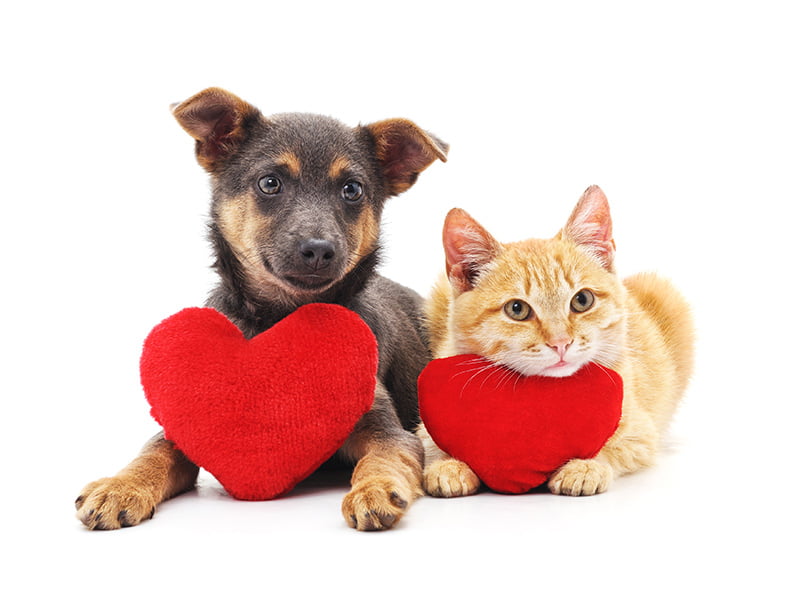
5. To Remove Worms
If your dog is eating grass and also suffering from diarrhea then it is a definite sign that he has some intestinal worms. There is, however, no scientific evidence to support these theories but this could be because they look at a different conclusion than ‘grass eating is equally good to get rid of worms’.
Instead, researchers discovered something else when studying wolves. They found parasites in grass-eaters scat samples.
Now knowing this information alone seems irrelevant as it pertains to your dog or cat’s model of care. What we can determine is not all animals eat grass for the same reasons. It doesn’t necessarily mean that dogs need to rub their face in the grass to help keep worms out of them. Eating grass is an instinct in many animals’ even humans.
6. When Feel Thirsty
Dogs often lick the ground or chew on grass. Despite having plenty of water provided by you, your dog might still covet dew-covered grass as a source for hydration. Because most dogs instinctively scavenge for food sources that have high levels of water content.
If your dog exhibits this sort of behavior then it’s very likely he is looking to hydrate himself with native plants. So make sure to check if he has access to fresh water at all times.
7. Behavioral Issues
Dogs start eating grass when they get bored. If your canine is locked up in the backyard all day, he might start eating grass as a way to release his boredom. To keep your dog amused for long periods, make sure you provide them with toys.
Help them exercise by engaging them in activities of sorts like high-intensity playtime. During which you actively engage with them and do at least 30 minutes of physical activity.
8. They like Taste Of Grass
Dogs may have the innate desire to munch on the cool blades of grass. They probably find it fascinating, just like a butterfly might feel drawn to mixing with some flowers. Who knows why they can’t resist? For one thing, dogs prefer new, green grass because its texture and smell are stronger than older grown grass. New grass also has a chemical known as (Z)-3-hexenal that makes the grass appetizing to pups.
When mowing the lawn, if your dog likes to follow you around. Be sure to keep it on a long leash as grass tends to make them elated; too excited, and off-balance that they could injure themselves in the process.
Why Do Dogs Eat Grass And Vomit?
When dogs eat a lot of something at one time, they eat grass and vomit to relieve them from the too much food feeling. Sometimes the food he had last may not have agreed with his stomach causing nausea and discomfort. So the dogs eat grass and throw up after that.
Why Do Dogs Eat Grass When Sick?
Dogs also eat grass when they feel sick. Dogs do this to induce vomiting and make them feel well.
What Are The Dangers If Your Dog Eats Grass?
When you let your dog roam free in your backyard or anywhere that is grass-filled outside, take note. The grass itself may not be harmful. However, it could also contain other kinds of contaminants that are toxic to dogs like herbicides and pesticides sprayed on it as well as intestinal parasites when they come into contact with the ground.
When plucking off the grass from the ground, your dog may ingest residue from such things in fecal matter from other dogs.
Conclusion
Although many dogs eat grass, it is not necessarily harmful to them. Some dogs eat grass to help with upset stomachs or other digestive issues. However, eating grass may also be a sign of an underlying illness, such as a nutrient deficiency or a more serious ailment. If your dog is eating a lot of grass, you should have it checked by a veterinarian.

Read More:
- What Can Cats Not Eat? The Facts You Should Know
- How Are Dog Years Calculated & 5 Signs That Shows Your Dog May Be Leaving
- Why My Dog Is Shaking? 7 Possibilities & Ways To Deal With It
- Why Is My Dog’s Nose Wet? Is That Normal & How To Deal With It?
- How to Choose Dog Breed – 5 Factors to Consider. For Kids & Old Folks Too

